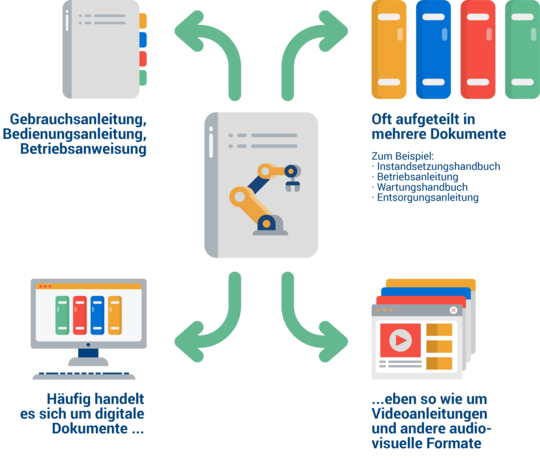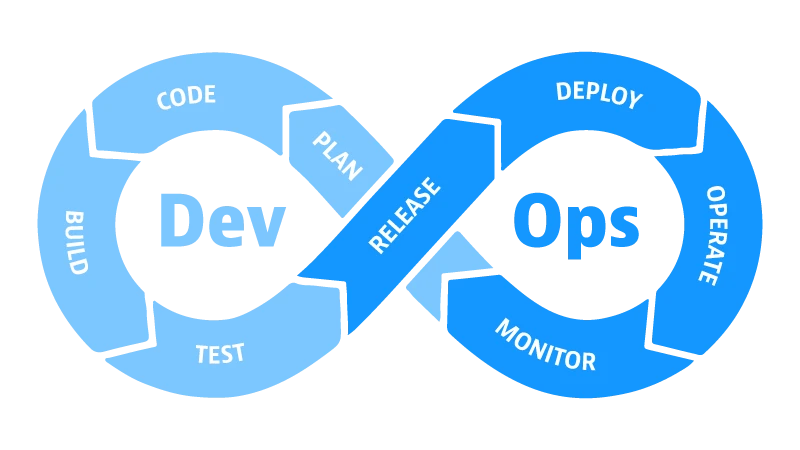The 5 most important skills of software engineers
Published

The demand for talented software engineers continues unabated. According to an analysis by Michael Page, a specialist recruitment company, software engineers and web app developers are the five most in-demand professions in the world, followed by electronics engineers, mechanical engineers, nurses and doctors.
Adapt or perish
Today's best software engineers bring a diverse mix of technical skills and personal qualities that allow them to work in agile environments where change is frequent and team members often don't work in one place.
In addition, half of all software engineer job openings are in industries outside of technology, according to a new report from Burning Glass, a labor market analytics firm. The industries where demand for software engineers is highest include finance, manufacturing and healthcare.
Only those who manage to adapt their skills as a software engineer to the demands of the current labor market have a successful career ahead of them. The rest are replaced by contract workers from abroad, who are usually cheaper and willing to go the extra mile to make a project a success.
If you want recruiters to jump on your LinkedIn profile like flies on honey, you need to acquire the 5 most important skills of a software engineer.
1. The ability to learn
"The key to success in this area will continue to be a willingness to learn"
, says Petrone, who works with industry experts in business, creativity and software engineering to create video courses for LinkedIn Learning, an American open online course website.

Every newcomer to software development has a huge mountain of knowledge to climb in order to catch up with experienced software developers and work on more interesting projects. This already difficult task is made even more difficult by the fact that software technology is constantly and rapidly evolving, as are all the tools and technologies used to design, develop, maintain, test and evaluate computer software.
By the time an entry-level software developer has familiarized themselves with one toolset, new, even better tools and technologies are already available. To cope with this constant change, software engineers must commit to lifelong learning and develop specific learning strategies to support this.
Perhaps the most important thing a software engineer can do to stay ahead of the curve is to ask questions. This may sound simple, but software engineers are sometimes afraid of being ridiculed or scorned and are willing to go to extraordinary lengths to avoid asking a simple question in order to better understand a particular problem or concept.
This inevitably sets them back professionally and increases the likelihood of making an easily avoidable mistake that hurts the entire team. The best mentors never penalize their students for asking questions. The sooner entry-level software engineers understand this, the sooner they will earn their black belt as a software engineer.
2. Computer programming
Computer programming remains the most fundamental of all skills for software engineers. While the theoretical basis of writing commands that are executed by computers is fairly static and unaffected by trends, the same cannot be said about the programming languages themselves.
Today, software engineers are expected to master a range of different programming technologies in order to work on everything from web to desktop and mobile applications to embedded devices.
According to the latest Octoverse report from GitHub, the world's largest developer community, the fastest growing programming languages are currently Kotlin, HCL, TypeScript, PowerShell, Rust, CMake, Go, Python, Groovy and SQLPL. When it comes to overall popularity, JavaScript remains at the top, followed by Java, Python, PHP, C++ and C#.
JavaScript is still the preferred programming language for front-end development, but is rapidly gaining ground in mobile development thanks to libraries and frameworks such as React Native and Native Script, in desktop development thanks to Electron.js and NW.js, in back-end development thanks to Node.js and in microcontroller development thanks to Espruino.
3. Documentation

Tech documentation - Source: quanos.com
A plumber would not design a sophisticated plumbing system consisting of dozens or even hundreds of pipes, fittings and devices without carefully documenting every single part of the system, because it would be almost impossible to change and maintain such a system well in the future.
When you consider that maintenance accounts for over 70% of the total lifecycle cost of a software project, it should be clear why the ability to write good documentation is one of the most important skills a software developer can have.
Hal Abelson, Jerry Sussman and Julie Sussman, the authors of Structure and Interpretation of Computer Programs, believe that programs must be written so that they can be read by humans and only exceptionally executed by machines. Without formal in-code documentation, most software projects eventually become impossible to maintain, extend and modify.
Good documentation explains exactly what a piece of code does, how it does it and how it can be used. Software engineers should write comments as if they were writing them for future teammates - not for themselves right now. A piece of code that seems perfectly self-documenting to the software engineer who wrote it will almost always seem puzzling a few days later, especially to someone new.
"Often the members of a software development team have very different backgrounds with a wide range of knowledge and experience. That's why it's important to write down the non-obvious and sometimes even the obvious things. Doing this in a way that is easy to understand takes practice, like any other skill you want to master"
, explains Jens Eickmeyer, a cloud architect and full-stack developer.
4. DevOps

Klassische DevOps - Quelle: dynatrace.com
Nowadays, software needs to be released much faster than before and the traditional waterfall model, which consists of several clearly defined phases that are worked through in a linear fashion, seems to be outdated. DevOps has taken its place, introducing close collaboration between teams that in the past worked in relative silos, namely development and operations.
According to the latest study, the percentage of organizations that have fully adopted DevOps has increased from 10% in 2017 to 17% in 2018, while the percentage of organizations that have never heard of DevOps has decreased from 6% in 2017 to 3% in 2018.
"DevOps engineers are in high demand as industries across all sectors, regardless of size, have started to adopt DevOps for effective software development"
, according to the Edureka 2019 Tech Career Guide.
"In fact, according to Marketwatch, the global DevOps market is expected to reach $12.85 billion over the next five years. With the world's leading organizations already adopting DevOps or in the process of doing so, skilled professionals who can work on a DevOps team and manage DevOps tools are more in demand than ever."
For a software engineer to become a DevOps engineer, extensive knowledge of software creation cycles and the ability to solve operational challenges is required. DevOps engineers can expertly navigate the cloud and take advantage of services such as AWS, Azure or Google Cloud Platform, and they are familiar with DevOps-related tools such as Git, Jenkins, Puppet, Octopus Deploy, Docker, Kubernetes and others.
5. Work well with others
Movies and TV shows like to portray software engineers as lone wolves working late into the night in dimly lit offices, but that's far from the truth. Today, software development is a collaborative endeavor, and software engineers are expected to communicate with others to ensure that everyone is on the same page when it comes to how the software application should be structured.
Organizations know that poor collaboration can derail any project, and they know that teamwork and intelligence win championships, as Michael Jordan, former professional basketball player, used to say. For this reason, soft skills are just as important to them as programming skills.
"Some [teamwork] skills can be taught, but others have to be learned on the job over time."
- David Garlan, Professor of Computer Science at Carnegie Mellon University.
One of the most important soft skills that software engineers can learn in order to work well with others is active listening, often described as the act of listening attentively and trying to understand the meaning of the words spoken by another in a conversation or speech. Active listening is a particularly important skill for software engineers working in diverse teams with different backgrounds, experiences and knowledge, where it is not possible to rely on different social and cultural assumptions when communicating with others.
Conclusion
As agile working has become the new normal in many organizations, software engineers are expected to not only be able to code, but also have certain soft skills, such as adaptability, communication skills and teamwork skills. These new requirements reflect the fact that software development has become far more collaborative than it was in the past. Of course, technical skills will never lose their importance, which is why it is so important for software engineers to continue to develop them throughout their careers.








